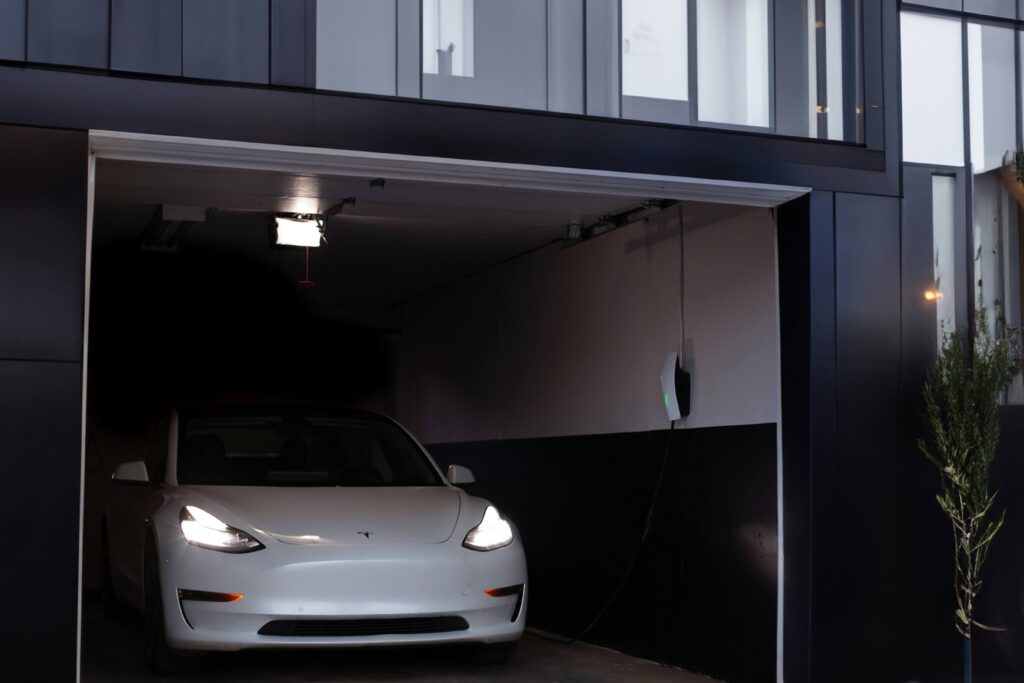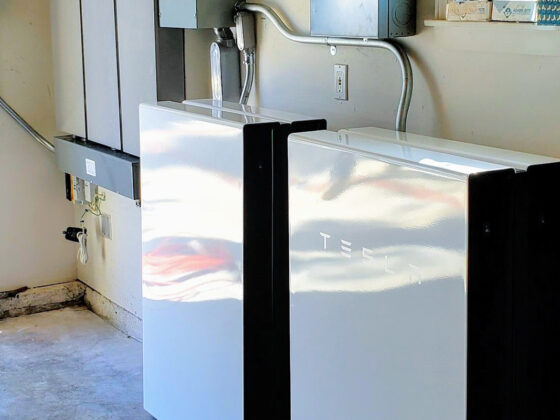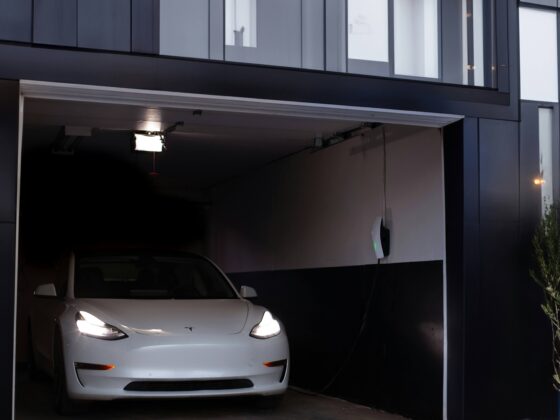As electric vehicles (EVs) rise in popularity, many EV owners are considering more cost-effective, sustainable, and convenient charging options. Installing solar panels to power your EV at home is a smart solution that offers energy savings and environmental benefits. For solar panel installation, consider consulting with a professional solar panel company.
Benefits of Charging Your EV with Solar Panels
1. Lower Your EV Charging Costs with Solar
Charging an EV can significantly increase your household electricity consumption. The average EV uses about 300 kilowatt-hours (kWh) to travel 1000 miles. The cost to charge your EV will range from the equivalent of $1.50/gallon to $5.00/gallon of gasoline, depending on whether you charge your car at home or at a retail fast charger. This can be reduced to less than 50 cents/gallon of gas, if supplied by solar.
Solar panels can help potentially save you thousands of dollars over the years. A solar-powered home charges your EV at a fraction of the cost of grid electricity, especially if paired with home energy storage (i.e., a battery).
The actual savings depend on factors such as your location, local electricity rates, and the size of your solar system. In areas with high electricity prices, solar-powered EV charging can make a noticeable difference in monthly expenses. Over time, these savings can help offset the upfront cost of your solar panel installation, making it a sound investment for your finances and future.
2. Charge Your EV Even During a Power Outage
Relying on the grid for energy has limitations, particularly during blackouts or peak demand periods. By installing a solar system with battery storage, you gain a degree of energy independence. Solar panels generate electricity as long as there’s sunlight, and if you have a battery system, you can store excess energy for use at night or during power outages.
For EV owners, energy security can be especially important. In the event of a blackout, you might worry about having enough charge to travel where you need to go. At Xero Solar, we suggest backing up your garage outlets with battery storage so you can charge your EV in an emergency situation, giving you peace of mind.
3. Further Reduce Your Carbon Footprint
Installing solar panels for EV charging further reduces your environmental impact. EVs already offer significant emissions savings over gasoline vehicles, but charging an EV from traditional grid electricity often relies on fossil fuels. Generating electricity with solar panels cuts out direct emissions entirely, making your EV’s environmental impact even smaller.
When you power an EV with solar energy, you can potentially reduce the carbon footprint of your vehicle by up to 90%, compared to charging from the grid, depending on your location and electricity mix. By embracing a solar-powered EV, you’re not only contributing to the fight against climate change, but also setting an example of sustainable living for others.
Getting Started: What You Need to Know Installing Solar
Ready to jump in? Here are some things to consider to ensure you maximize the efficiency and cost-effectiveness of your home solar setup.
1. Evaluate Your Energy Needs
Before installing solar panels, calculate the energy requirements of both your home and your EV to get you a clear idea of how much power your solar panel system should generate.
Consider consulting a professional solar company like Xero Solar who can assess your current electricity usage and recommend an appropriately sized solar system. By knowing your energy needs up front, you can avoid overspending on an oversized system or running short with an undersized one.
2. Ensure Your Roof is Suitable for Solar Panels
Not every roof is ideal for solar panel installation. Roofs should generally have good exposure to sunlight, minimal shading from trees or other structures, and a suitable orientation and angle to maximize sunlight absorption. In California, south-facing roofs are typically best, as they receive the most sunlight throughout the day.
You’ll also want to consider the condition of your roof. Solar panels last around 25–30 years, so if your roof is nearing the end of its lifespan, it may be necessary to re-roof. There may be some financial and warranty-related benefits to coordinating these projects. A durable roof will ensure that your solar investment is protected for decades to come.
3. Determine the Cost and Savings
Solar panel systems vary in cost depending on their size, brand, and location. Federal incentives can significantly reduce the net cost of installation. The U.S. federal Investment Tax Credit (ITC), for example, allows homeowners to deduct a percentage of their solar installation costs from their taxes.
In addition to incentives, calculate your potential long-term savings. By charging your EV with solar power, you’ll reduce or eliminate charging costs from the grid, which can be substantial, especially in areas with high electricity rates. Over time, these savings can offset the initial installation cost, making solar power a financially sound investment.
4. Choose a Compatible EV Charging Station
When integrating solar with an EV, select a compatible EV charging station. Some smart chargers can optimize charging based on solar energy availability, allowing you to charge your EV only when solar power is being generated. This type of system maximizes efficiency and helps you rely less on the grid.
Xero Solar offers compatible EV chargers as part of our solar panel and battery installation service, so ask about these options during your initial consultations.
Making the Switch to a Solar EV Charger Station
Whether you’re motivated by environmental concerns, financial savings, or energy independence, combining solar panels with your EV charging setup is a smart move that pays dividends in multiple ways.
If you’re considering making the switch, Xero Solar, a California solar company, offers a no-pressure consultation to understand your needs and properly size your system. With the right setup, you’ll be on the road to cleaner, greener, and more affordable driving.
Contact Us
"*" indicates required fields



